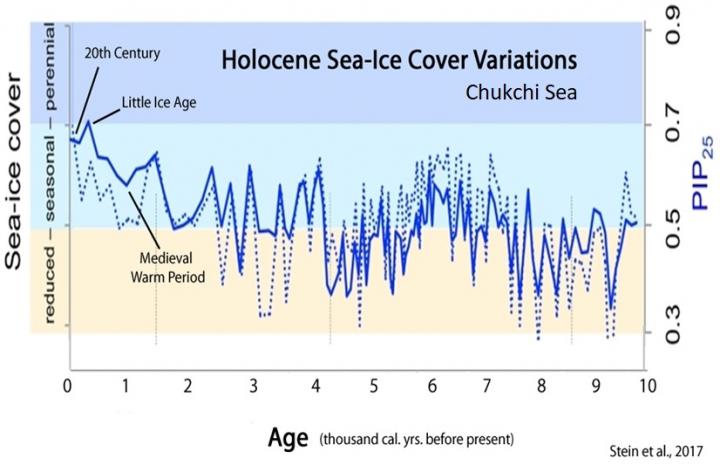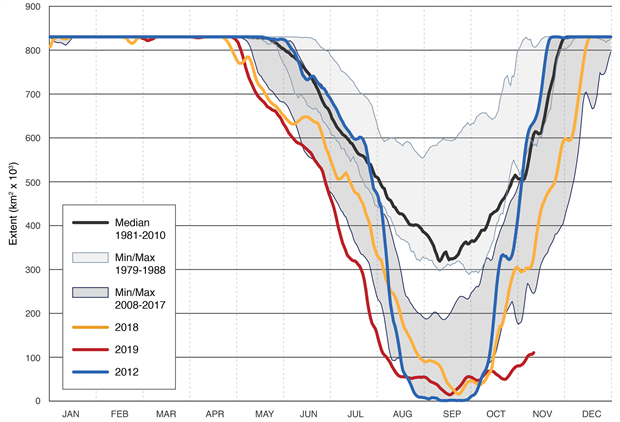The dipsh** and his braindead ilk continue to pooh pooh it. They KNOW better. No such thing. Just ask them. No such thing.
They will drown and burn and they will insist as they are dying "climate change is a HOAX'.
So much for that!

The Chukchi Sea has experienced large changes in sea ice coverage. The September 2018 Arctic sea ice minimum extent was characterized by profound sea ice loss in the Chukchi Sea (Fig. 6). The dearth of sea ice continued into the autumn season, accompanied by anomalously warm air temperatures of 3-8°C above the 1981-2010 average. Progressing into October and November 2018, a high-pressure system over the Bering Sea expanded into the Chukchi and Beaufort Seas, sustaining warm conditions and, as a consequence, slowed the autumn advance of the sea ice cover. Sea ice extent in the Chukchi Sea remained well below average until the end of December 2018, when it reached near-average coverage (Fig. 6). Throughout the winter and spring, air temperatures continued to be 1-4°C warmer than the 1981-2010 average, which likely contributed to the low sea ice concentrations.
In spring 2019, melt onset across the Chukchi Sea occurred 20-35 days earlier than the 1981-2010 average. Sea ice began a rapid and accelerating retreat from the south in early May, leading to a record low sea ice extent that lasted until early August, with negative sea ice concentration anomalies of 50%. A combination of anomalously warm air temperatures (1-5°C above the 1981-2010 average) and southerly winds promoted this precipitous loss ice. As the sea ice retreated northward, exposed open water areas warmed, leading to anomalous sea surface temperatures greater than 5°C above average. By mid-September, sea ice coverage in the Chukchi Sea remained far below the 1981-2010 average. This reduction in sea ice coverage has continued far into the freeze-up period, with ice extent only one-third of the previous record minimum. Consistent with the long-term record of Arctic-wide ice loss, most characteristics of the sea ice in the Chukchi Sea, including the length of the melt season and area of open water subject to rapid warming in summer, are now entirely different compared to the first decade (1979-88) of the satellite record." This post was edited by my2cents at September 15, 2020 12:55 PM MDT
This post was edited by my2cents at September 15, 2020 12:55 PM MDT